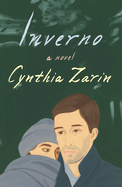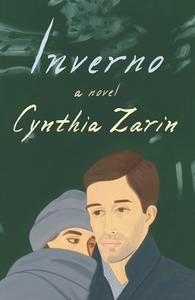
 Some books feel as though readers must swallow them whole, absorbing the story as part of their being. Other books force readers to hold them apart, to stand back from them as at a gallery, facing a confounding but insistent work of art. Inverno, a work of fiction from poet Cynthia Zarin (Orbit; An Enlarged Heart), is the second kind. It is a cord pulled taut and fraying, an ambitious piece of prose that tangles the past and the present, layering allusions to movies, novels, song lyrics, and fairy tales.
Some books feel as though readers must swallow them whole, absorbing the story as part of their being. Other books force readers to hold them apart, to stand back from them as at a gallery, facing a confounding but insistent work of art. Inverno, a work of fiction from poet Cynthia Zarin (Orbit; An Enlarged Heart), is the second kind. It is a cord pulled taut and fraying, an ambitious piece of prose that tangles the past and the present, layering allusions to movies, novels, song lyrics, and fairy tales.
Inverno opens with Caroline, standing in Central Park as snow falls around her, waiting for Alastair to call. In fact, the entirety of this slim novel's fractured narrative spins around this moment, as 30 years of connection and love and brokenness and pain are concentrated in this one unresolved moment. Ostensibly about Caroline and Alastair's decades-long love, Inverno glances off the occasional facts of their relationship before turning readers down otherwise unmarked paths. The novel is an entirely oblique construction, looking sideways at grief and trauma and the ways memory can distort the truth even as humans try to pin it down: "The truth changes as she gets hold of it, like a kite or a snake; it does not like to be held, it thrashes." Inverno also resists being held, but in its various permutations, the book reveals much about human longing.
Their story is told by an omniscient narrator who occasionally shifts into a first-person voice to address directly an unnamed "you." Readers might puzzle over this choice, but Zarin's use of a stream-of-consciousness style will please fans of Virginia Woolf: "Once in Montalcino the fireflies were on one side of the road, but not the other (was it the grapes they liked, or olives, she couldn't remember) and then, there they were again, twenty years later, last summer, like spawn lighting the pasture, as she looked out the window past the lilacs." With the poet's eye for detail, Zarin takes an image and turns it over and over, but rather than granting more clarity, these recursive efforts only prove the frailty of memory and the inconstancy of truth. Inverno is a brief but powerful novel, and readers will appreciate the emotional breadth on display in this kaleidoscopic story. --Sara Beth West, freelance reviewer and librarian
Shelf Talker: Inverno is an entirely oblique construction, looking sideways at grief and trauma and the ways memory can distort the truth even as we try to pin it down.

